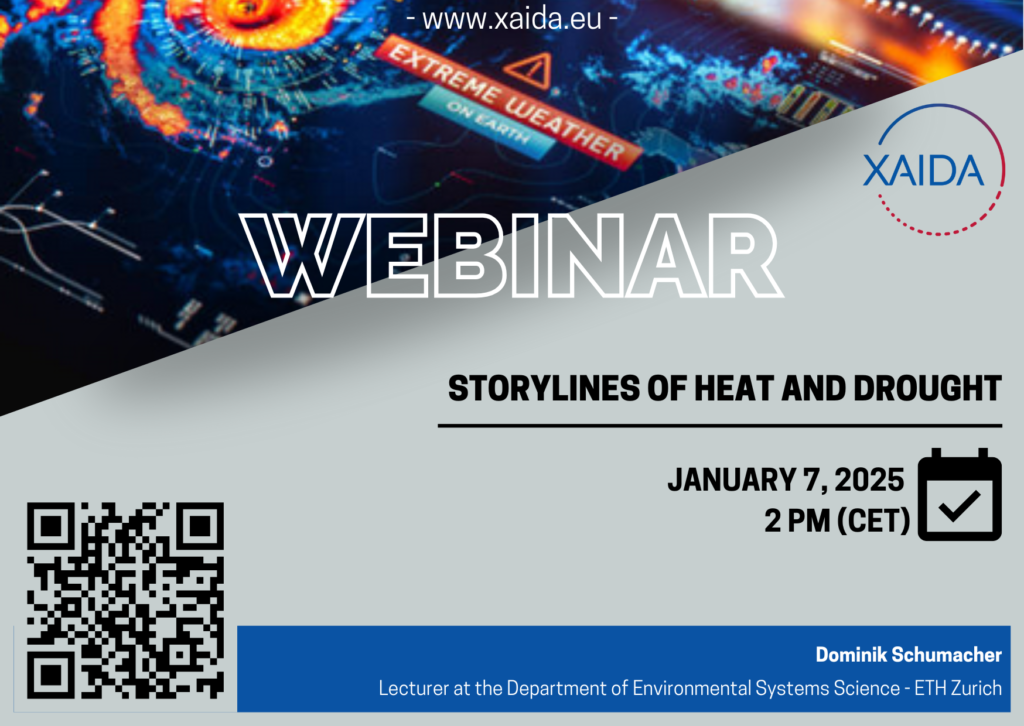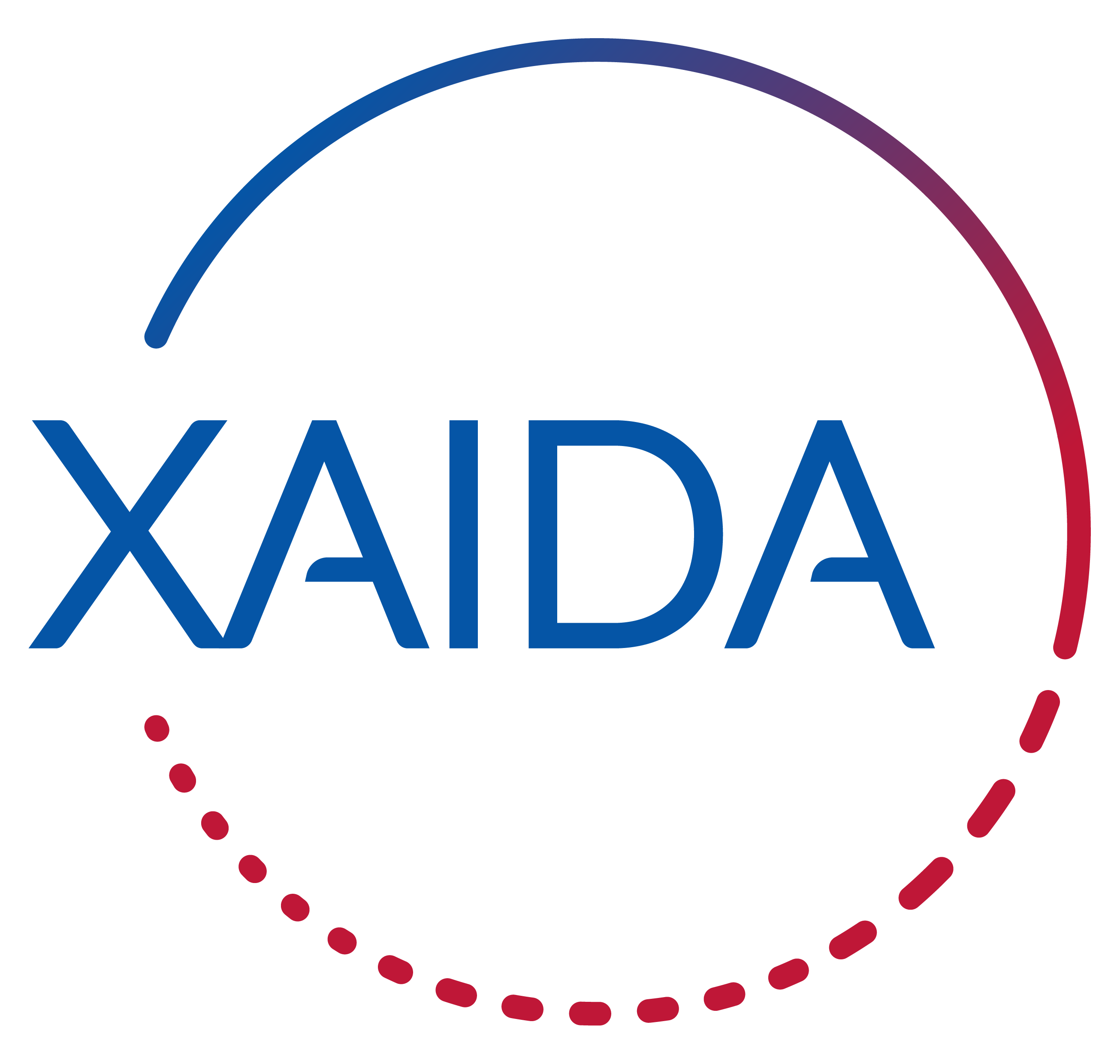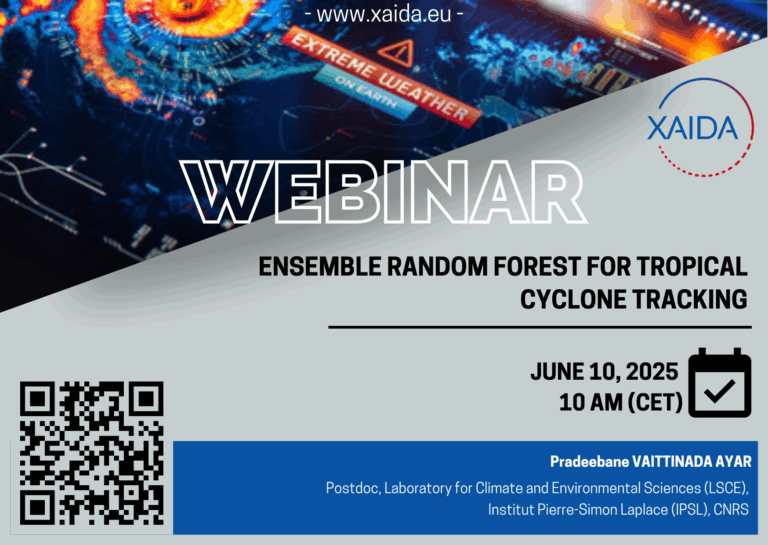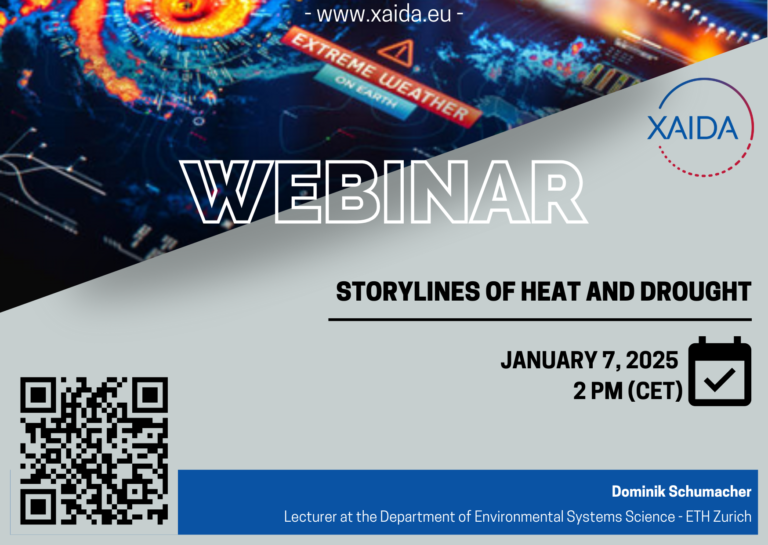XAIDA WEBINAR | STORYLINES OF HEAT AND DROUGHT
XAIDA is now hosting an open monthly webinar. Within the XAIDA project, sixteen research institutes and climate risk practitioners, aim to develop and apply novel artificial intelligence methods to better assess and predict the influence of climate change on extreme weather. Join the webinar each month to dive into interesting topics such as machine learning for climate extremes, the societal impact of extremes, and education about climate change.
Coordination: Manon Rousselle (IPSL)
January 7th, 2025 at 2 PM (14:00) CET
Speaker: Dominik Schumacher, Lecturer at the Department of Environmental Systems Science, ETH Zurich
Title: Storylines of heat and drought
Abstract: The 2022 summer was unusually hot and dry across much of Europe. Soil moisture deficits were primarily invoked by precipitation shortages. This is, in turn, considered a manifestation of internal variability, and soil desiccation was further accelerated by warming-fuelled evaporation. More generally, unforced dynamics are considered the key meteorological driver of not just the hot and dry 2022 summer but also other extreme weather events. Human-induced climate change, on the other hand, is thought to modulate event intensity through thermodynamics.
This perspective is useful and serves as the basis of conditional or storyline-based extreme event attribution approaches, but it also prompts questions: how does the role of thermodynamics change in the face of an ever-warming climate? Specifically, how would the 2022 summer unfold under additional background warming? How extreme would the already record-shattering 2021 Pacific Northwest heatwave become, and how would the severity of a drought such as in the Amazon in 2023 change? And just how defendable is the conceptual separation of thermodynamics and dynamics?
To answer these questions, a suite of global Earth System model simulations is performed in which observed atmospheric circulation patterns are combined with different thermodynamic states.
Registration: xaidaproject@gmail.com







